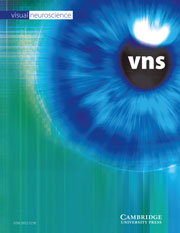Dr. Joseph Bilotta, an eminent scientist in the field of fish visual neurophysiology and psychophysics, died suddenly and unexpectedly on January 2, 2006. A native of Niagara Falls, NY, Joe was born October 21, 1955. His passion for learning took him on a journey from an Associate Degree in Mathematics in 1975 from Niagara County Community College to a Ph.D. in Experimental Psychology conferred by the City University of New York in 1987 under the mentorship of Dr. Israel Abramov. Joe continued his training at Vanderbilt University, working as a post-doctoral fellow in the laboratory of Dr. Maureen Powers. In 1991, Joe joined the faculty of Western Kentucky University as an assistant professor of Psychology, and quickly moved through the ranks, becoming full professor in 2001.

Joe's early work, which established the temporal, spatial, and spectral properties of ganglion cells in the goldfish retina, was viewed as seminal for understanding that many functional properties of retinal ganglion cells are common across vertebrate species. His later studies of visual behavior in goldfish were recognized both for their impact on the field and the clever adaptations of psychophysical methodology that Joe and his colleagues devised to study fish visual behavior. In recent years, Joe's lab expanded from using the goldfish to include the zebrafish as a model of retinal function. His latest work focused on information processing in the zebrafish retina, and from this work Joe became well known for using the electroretingram as a physiological tool and developing a technique for recording from fish that were only a few days old. Joe and his colleagues published work using the zebrafish as a model of retinal development, recovery from neural injury, retinal disease, visual deprivation, and the effects of toxins on visual system development. Besides international recognition by peers in the vision science community, Joe received the College of Education and Behavioral Sciences Faculty Award for Excellence in Research in 1996 and 2002, and the University Award for Excellence in Research in 2002. Joe also served on the Editorial Board of Visual Neuroscience.
Joe believed in the transforming power of education, both from his own experience and the transformation he witnessed in his students. Joe was an excellent teacher, receiving from Western Kentucky University the College of Education and Behavioral Sciences Award for Excellence in Teaching in 1993 and 2000 and the University Award for Excellence in Teaching in 1993. Joe was also the consummate mentor. He spent endless hours with his students, providing them with guidance and attention balanced with a keen sense of knowing when to let students learn from their struggles. Joe was often seen at ARVO with his cadre of students, escorting them to view posters or introduce them to a scholar whose work they had discussed in a lab meeting. Joe will be remembered by his students as one who always had an open door and an ear to bend. His love of sharing knowledge will always be remembered, and a scholarship fund in Joe's name has been established at Western Kentucky University to continue that legacy. Those who wish to honor his memory may send a donation to the Joseph Bilotta Scholarship Fund, Department of Psychology, Western Kentucky University, 1906 College Heights Blvd. #21030, Bowling Green, KY 42101-1030.
Joe's warmth, intensity, wit, caring, and wisdom are missed greatly by his friends, colleagues, students, and family. He is survived by his wife of 23 years, Elizabeth Lemerise; his mother; a sister; two grandmothers; a niece; a nephew and numerous aunts, uncles, and cousins.

